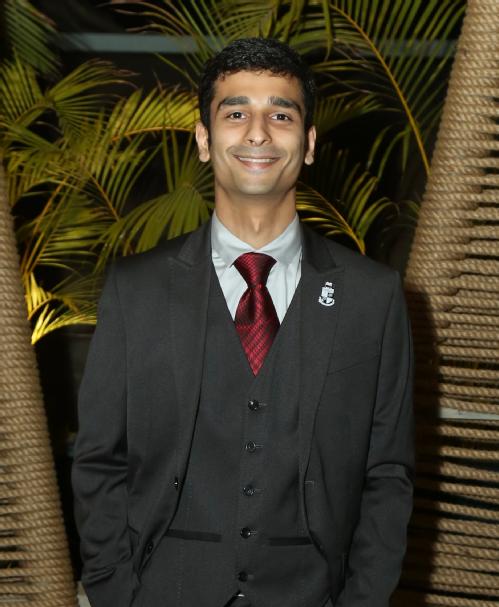‘100 years of planning can collapse in the next moment, but each moment of adaptability helps one thrive 100 more’
Strategic innovation and sustainability specialist, Ganesh Malani (MSc Innovation and Entrepreneurship, 2019) epitomises the wave of young, dynamic Warwick alumni focusing on strategic and sustainable innovation in Mumbai, India. Discover how his entrepreneurial journey started at a young age and how his passion for innovation is having a positive impact on a diverse range of communities across India.
Why did you choose to study at WMG?
WMG is a research-intensive organisation, so I knew that what I was going to be taught was at the forefront of innovation and entrepreneurial thinking. WMG also strikes a unique and interesting balance between engineering and business. I’m not aware of any other university where research, industry, and teaching are so intertwined.
How did your time at WMG support your personal and professional development?
It helped me to structure my ideas and thinking around business. It also taught me how to undertake research but also know when to put theory aside and take practical action. It’s one of the core teachings that WMG offers. Professionally, it enlightened me about the immense possibilities that lie ahead in the world. It gave me a great network of industry professionals who I met during my time at WMG or who I met because of WMG or Warwick.
Can you tell us about your career journey?
As a child I was fascinated by taking things apart and building small robots and prototypes with basic electronics and things I could find around my home and school. When I was 16, I started selling carpets to hotels, airlines, and banquet halls, which sparked my interest in business and innovation. It gave me people skills, knowledge of how to build client relationships, and taught me how to sell. In joining Shecup, I marketed menstrual cups in a country where menstruation is a social and religious taboo, working my way up to become a director, a role which enabled me to combine my skills in sales, marketing, and continuous improvement.
While studying at WMG, I focused on innovating products to decarbonise heating systems in the UK. This research involved creating a product, Electrisenso that was supported by Warwick Enterprise’s startup scheme and the WMG Accelerator programme. Upon graduation and returning to India, I started Apex Hatchers, an operations consultancy firm which draws together innovation and team performance strategists with legal professionals to support businesses to penetrate the diverse, growing Indian markets.
How are you incorporating sustainable practice into your businesses?
Sustainability for me is about taking care of people, planet, and profit. With Shecup, we’ve planted over 10,000 trees to drive towards carbon neutrality. We nurture those trees, which generates employment for farmers in drought prone areas of Maharashtra, and we’re offering pro bono cervical cancer check-ups to sex workers in Sonagachi, Kolkata, which is among the largest red-light districts in Asia.
The products of Electrisenso is by its very nature more sustainable in that it reduces carbon emission by 90% and improves energy efficiency by up to 30% compared to traditional heating systems. Apex Hatchers, is guided by the vision of becoming a cradle for sustainable innovation in India; we help other businesses to build and grow their own sustainable innovations.
What do you think are the biggest challenges to sustainable business practice in India?
Cultural influences and levels of education vary throughout the country. That diversity means we can’t use the same approach for everyone. In urban areas, it’s easier to use traditional methods of digital marketing and advertising, but this wouldn’t work in extremely rural areas. However, with Shecup the product is so beneficial in rural areas, where many women do not have regular access to sanitary products. There, empowering local changemakers is a great tool for advertisement where people travel from village to village promoting our products.
Who have been the biggest influences on your career so far?
As a child playing in his lap, I learned so much from my father at work and I picked up skills like discipline, hard work, and how to manage multiple projects and companies at the same time. He also taught me the values of honesty, integrity, and perseverance. At WMG, Professor Jay Bal was the Course Leader for the MSc in Innovation and Entrepreneurship. While working on my project, he showed me how to critically analyse, understand things, and think both creatively and effectively. Even now, his wisdom, guidance and mentorship are catapulting me forward in my career and I think of him as my academic father.
What advice would you give to entrepreneurial students looking to enter the Indian market?
Things move fast here in India, and that requires a dynamic, flexible approach to business. The saying that has guided me through challenging times is ‘100 years of planning can collapse in the next moment, but each moment of adaptability helps one thrive 100 more’.

"Things move fast here in India, and that requires a dynamic, flexible approach to business."
